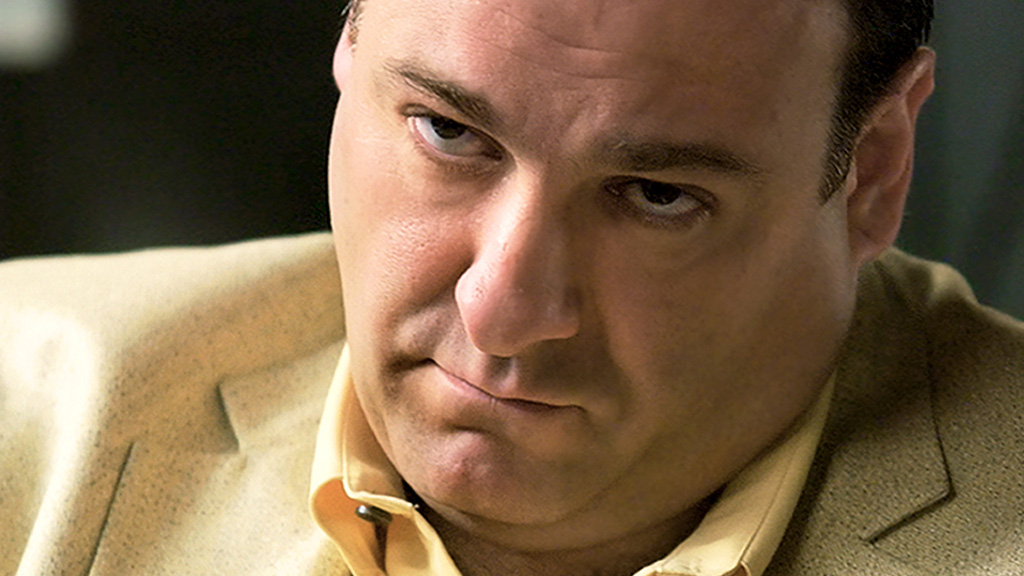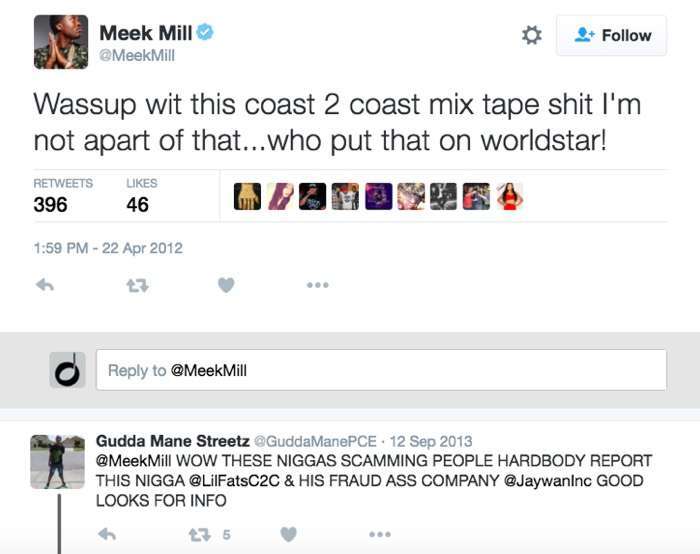What happens if you don’t like the press you’re getting?
One option is to look at your business model and address the issues, or address the coverage head-on. The other option is to try to intimidate and bully publications that disagree and criticize, even if that coverage is accurate and protected by the First Amendment.
That latter option is apparently the strategy being pursued by Coast 2 Coast Mixtapes, a service that targets aspiring, unsigned rappers while offering the possibility of label deals and success. But instead of addressing real concerns about this questionable approach raised by Digital Music News, Coast 2 Coast Mixtapes (and its parent company, Lil Fats, Inc.) has now threatened legal action against DMN for calling it a ‘scheme’ and ‘scummy’ in a late-January guest post.
The sloppy and threatening ‘nastygram,’ sent by New York-based music attorney Cassandra Spangler, accuses Digital Music News of defamation and libel, claims ‘significant injury’ against Coast 2 Coast, while demanding the total removal of all ‘libelous references’ and screenshots of Coast 2 Coast offers from our article. The cease-and-desist also dangles the ‘possible filing of a lawsuit against Digital Music News seeking monetary damages and an injunction’.
In response, Digital Music News has not only kept the original post intact, we’ve pursued additional investigation into Coast 2 Coast. Because if there’s one golden rule about defamation, it’s this: it isn’t defamation if it’s true.
Here’s another rule about lawyers: they often abuse their power by making grandiose, threatening statements in an attempt to scare people without legal knowledge. Indeed, the c&d ‘nastygram’ is often a weapon used by overly aggressive, bullying companies with extremely flimsy claims that would never stand up in court, oftentimes filled with sloppy, ill-supported, angry language. And it all typically carries one goal: intimidation.
One problem with this reprehensible practice is that the recipient of one of these nastygrams can fire right back, and effectively call bullshit. Which is exactly what we’re going to do. In this case, we see a number of critical and problematic issues with the letter sent to us by Coast 2 Coast’s counsel, including several outright incorrect assertions, many of which were confirmed by the attorneys we consulted.
In fact, after reading this ridiculous letter, one attorney suggested Coast 2 Coast fire their counsel. For starters:
(a) Calling a business a ‘scheme’ doesn’t constitute defamation.
Far from it, a ‘scheme’ could apply to any business, including Digital Music News. Perhaps business people prefer to call this a ‘model,’ but Google the term ‘scheme’ and you will find it technically defined as:
‘a large-scale systematic plan or arrangement for attaining some particular object or putting a particular idea into effect.’
In that light, Verizon Wireless is a ‘scheme’ for producing revenues from mobile subscribers; Universal Music Group is a ‘scheme’ for attaining revenues derived from music, and Digital Music News is a ‘scheme’ for producing revenues from music industry coverage.
Now, to the extent that ‘scheme’ carries a negative connotation, we are certainly allowed to express the opinion that Coast 2 Coast can be characterized as misleading to the young, impressionable artists that it targets. In the opinion of the author of the piece, Gaetano DiNardi, as well as that of Digital Music News, charging artists substantial fees for a chance at exposure in front of questionably anointed ‘celebrity’ judges and gatekeepers, while playing off of their hopes and dreams isn’t the most wholesome or honest business approach. As far as we know, this isn’t illegal, though it raises ethical issues that all artists should be aware of.
(b) Calling a business ‘scummy’ does not constitute defamation.
Those concerns outlined above are why the author of the guest piece called Coast 2 Coast ‘scummy’. It figuratively means dirty, not wholesome, and certainly not straightforward. Coast 2 Coast, please don’t make a judge laugh at you.
(c) A lawyer shouldn’t be citing laws from the State of New York when nobody involved resides in the State of New York.
Digital Music News is based in California, while Coast 2 Coast has a listed address in Portland, Oregon (with Miami another listed location). That means the only person in New York is the lawyer, which might explain why her letter constantly and specifically cites laws from the State of New York. Spangler also repeatedly cites specific case law from the State of New York, even though any threatened legal action would have to be filed outside of her home state.
(d) Courts are typically extremely unfriendly to flimsy, bullying challenges based on loosely-defined ‘defamation’ and ‘libel,’ especially when they involve freedom of the press.
In fact, Coast 2 Coast’s attorney might want to look up Supreme Court rulings on the matter (I’d tell you the cases, but do your own research). Turns out the right to express an opinion about a public figure, company, or government has been heavily protected in this country since about the 1700s.
(e) Further investigations into the business model of Coast 2 Coast validate our earlier concerns.
In our initial piece, DiNardi offered strong opinions on the way Coast 2 Coast used promises to lure money from aspiring, inexperienced young artists. That involved follow-up interviews with a number of rappers who either were participating, previously participated, or canceled their participation with Coast 2 Coast based on concerns over their claims and general business approach.
Perhaps unsurprising given this company’s attempt to stifle Digital Music News’ critical coverage, most of those artists declined to go on record with their experiences. One that did was 16 year-old $lim Tuc, who was accepted into the program, paid an initial $150 deposit, but withdrew based on unresolved questions about this company and its practices.
(Actually, you might want to check out $lim Tuc here, you can tell it’s early but it’s not bad!)
Additionally, Gaetano submitted an unedited Gucci Mane track as a submission into the Coast 2 Coast ‘tour,’ which resulted in an immediate approval (and immediate requirement to pay $150 upfront). This proves zero selectivity on the part of Coast 2 Coast, and suggests that this company will approve anyone willing to pay for access (even if they have little-to-no chance of ever being signed or are ripping off someone else’s work).
Beyond this, we’ve also found numerous other indications of wrongdoing, including a high-profile complaint from Meek Mill over misuse of his likeness and misleading association.
Perhaps the most damning aspect of our ongoing investigation into this company is how many other people are actively questioning its ethics. And that is most glaringly displayed by one little thing: Google Auto-Complete, which catalogs and presents the top search activity around key search terms from millions of users.
As later documented by DiNardi, Google’s top Auto-Complete around ‘Coast 2 Coast’ is ‘scam’.
Here’s a copy of the letter we received from Coast 2 Coast’s attorney, Cassandra Spangler.
The post Coast 2 Coast Threatens Litigation Against DMN for Calling It a ‘Scheme’ appeared first on Digital Music News.

